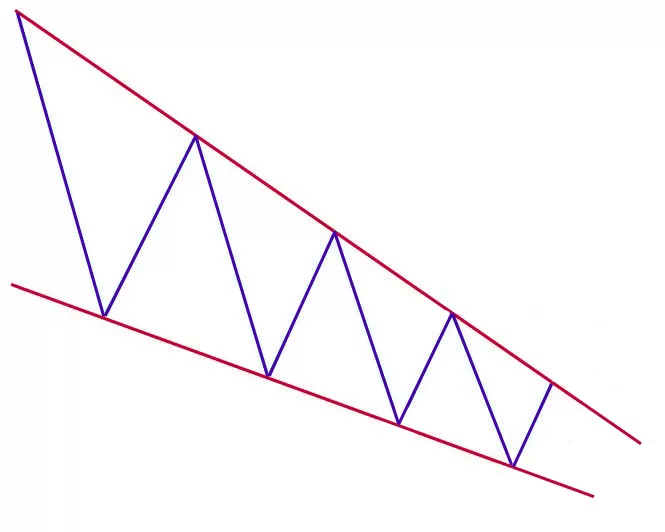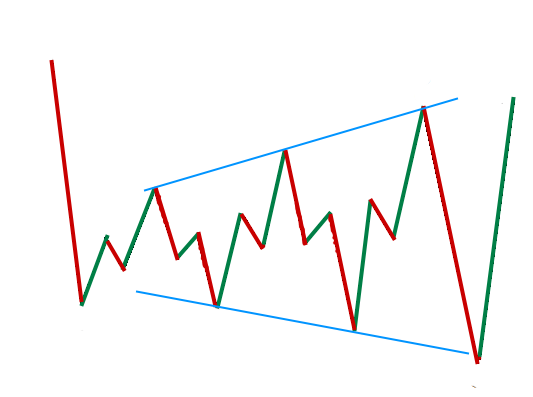The spinning top candlestick pattern is a common sight in the world of trading, offering valuable insights into market sentiment and potential trend reversals. This guide aims to delve into the intricacies of this intriguing pattern, offering an in-depth understanding of its formation, interpretation, and practical application in trading.
What Is a Spinning Top Candlestick?
A spinning top is a type of candlestick pattern that signifies market indecision or a balance of forces. It is characterized by a short, compact body situated between two long wicks. The main feature of this pattern is that it reflects an equal opening and closing, hinting at a lack of clear direction in the market at the time.
In appearance, the spinning top candlestick resembles a child’s spinning top toy – hence the name. It emerges frequently in various market trends, making it a versatile tool for traders who are adept at spotting and interpreting it.
Structure of the Spinning Top Candlestick
The spinning top’s structure is defined by a short body flanked by two long wicks. These wicks, extending upwards and downwards, should ideally be of similar length. The body of this candle, representing the range between the opening and closing prices, is significantly shorter, indicating a close near the opening price.
The spinning top candlestick can be either bullish or bearish. In a bullish spinning top, the closing price is slightly above the opening price. Conversely, in a bearish spinning top, the closing price is slightly below the opening price.
Interpreting the Spinning Top Candlestick
The spinning top candlestick’s primary implication is a state of market indecision. It suggests a tug-of-war between buyers and sellers, with neither gaining a decisive upper hand. This balance of forces often indicates a potential price reversal, especially if it occurs after a price decline or rise.
However, interpreting the spinning top should not be done in isolation. Its signal strength is considerably enhanced when corroborated by the following candle or other technical indicators. This confirmation helps traders gauge the possibility of a trend reversal with greater accuracy.
Spinning Top Candlestick in Uptrends and Downtrends
The location of a spinning top within a broader market trend considerably influences its interpretation. When a spinning top appears after an uptrend, it can suggest that the bulls might be losing steam, hinting at a possible bearish reversal. On the other hand, a spinning top emerging after a downtrend indicates that the bears might be weakening, suggesting a potential bullish reversal.
Trading with the Spinning Top Candlestick
Trading with the spinning top candlestick requires caution and confirmation. Traders should ideally wait for the next candle or use technical indicators to confirm the signal provided by the spinning top. This approach helps to eliminate uncertainties, providing a more reliable reversal signal.
For instance, in an uptrend, if a bullish candle follows a spinning top at the bottom, it could serve as an entry point for traders. Similarly, in an uptrend, if a bearish candle emerges at the top after a spinning top pattern, it could possibly signal an exit point.
Differentiating between a Spinning Top and Other Candlestick Patterns
The spinning top candlestick pattern often gets confused with certain other candlestick formations, particularly the doji pattern. Both these patterns are considered neutral and share similar structures, with wicks extending upwards and downwards. However, a critical point of difference lies in their bodies. Doji candles have almost no body, with the opening and closing prices nearly identical. In contrast, spinning tops have a definite, albeit small, body.
Advantages and Disadvantages of Using Spinning Top Candlestick
The spinning top candlestick pattern offers several advantages to traders. It is easy to spot, frequently appears in charts across different time frames, and can provide early signals of potential trend reversals.
However, it also has its share of disadvantages. The spinning top candlestick pattern is not always a reliable trend reversal indicator. Furthermore, it’s often challenging to differentiate it from other similar candlestick patterns, such as the doji. Hence, it is best used in conjunction with other technical analysis tools.
FAQs
Is a Spinning Top Candle Bullish or Bearish?
A spinning top candle can be either bullish or bearish. Its color determines its bias: a green or white body indicates a bullish spinning top, while a red or black body signifies a bearish spinning top.
What does a Spinning Top Candle indicate?
A spinning top candle indicates indecision in the market. It has a small real body, showing that there’s a close proximity between its opening and closing prices, with long shadows on both sides. This reveals that both bulls and bears were active during the session but neither could gain the upper hand.
What happens after Bullish Spinning Top?
After a bullish spinning top, the market’s direction isn’t certain. It indicates potential reversal or continuation based on the preceding trend and future candles. If following a downtrend, it might suggest a potential bullish reversal, but confirmation from subsequent candles is needed.
What is the difference between a Spinning Top and a High Wave candle?
Both spinning tops and high-wave candles indicate market indecision. The main difference is in their shadows. While spinning tops have symmetrical upper and lower shadows, high-wave candles have long shadows but they can be asymmetrical, with one shadow being significantly longer than the other.
Conclusion
The spinning top candlestick is a powerful tool in a trader’s arsenal. Despite its simplicity, it offers valuable insights into market sentiment and potential trend reversals. However, like all trading tools, it should be used judiciously and with other technical indicators to ensure the best possible trading decisions.
- 8 Best Prop Firms USA: Real trader Reviews and Payouts - March 10, 2025
- Forex Trading in Uganda: Start With $10—An Incredible Opportunity on a Tight Budget! - February 24, 2025
- Master Forex Trading Algorithms: Your Path to Success in 2025 - February 17, 2025






